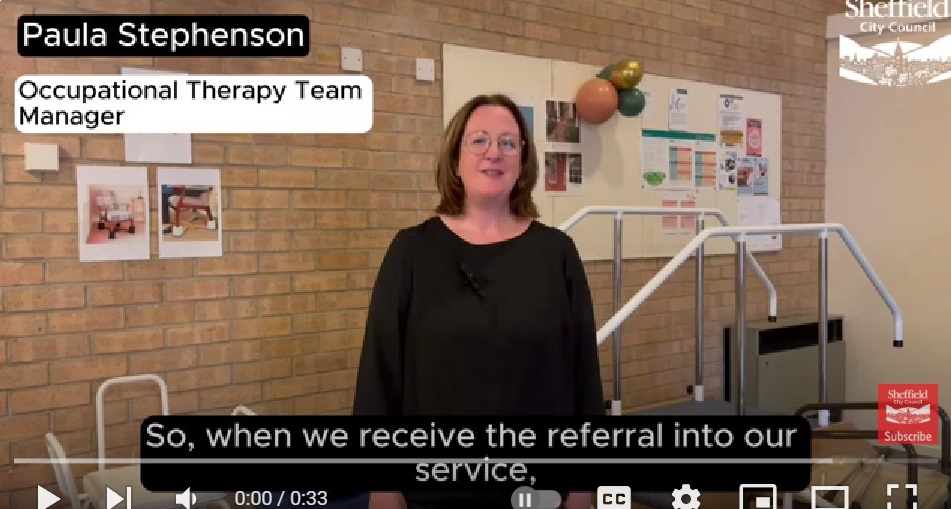“A small change made a big difference to me at home’ - aids and adaptations changing lives
A new Independent Living Clinic has just launched at The Manor Neighbourhood Centre - another step towards making it easier for people with a long-term health condition to access equipment to support them to stay well and independent at home.
The clinic is for those who need small aids and adaptations in their home. They can access an occupational therapy assessment and receive specialist advice regarding the most suitable equipment, which is then provided at no charge to the person.
Providing this opportunity means that those who can attend the clinic are able to try out equipment to find out what is best for them and their home, so that they can carry out everyday tasks such as bathing, showering, and getting on and off their furniture more easily. ‘A small change made a big difference to me at home’ comment was given to the Occupational Therapy Team by a person they recently assessed, a sentiment that the team hears regularly.
Trying out what’s on offer can help a person see how different types of equipment can help them and avoids waiting on a list to be assessed at home for something that can be provided much quicker via the clinic and can be tried out first.
Items such as bath boards, bath lifts, grab rails, raised toilet seats and bed grab rails were all on display at the launch for people to try. These pieces of equipment often mean the person can regain their independence with many everyday domestic and personal care tasks at home.
If people contact the occupational therapy team, they are asked some questions and either signposted to other services where appropriate or given an appointment to visit the clinic if they are physically able to attend.
Before their appointment at the clinic, an occupational therapy worker will talk to the person about what their home is like and tell them what measurements and photos of the interior of their home they need to bring to the appointment to ensure that the equipment prescribed is suitable for the home environment. It is hoped that giving this personalised, one-to-one support at this point will prove to be very effective.
After a visit to the clinic and trying out equipment, the Council places an order for what an individual needs and arranges delivery to their home. A follow-up call is always arranged after delivery to make sure that everything is satisfactory.
The video shows the clinic’s first customer with the Occupational Therapy Assistant and Paula Stephenson, Team Manager:
Councillor Angela Argenzio, Chair of Adult Health and Social Care Policy Committee at Sheffield City Council, said: “We’ve designed this service for people who are accessing our occupational therapy services, and who can stay independent more easily by using the items that we can offer them.
“We look at what’s most important to the person and our assessments are based on need so that they can stay well and independent at home for as long as possible.
“This approach will allow us to see more people, resulting in fewer people having to wait for assessments. Of course, those who need assessing at home will still receive a visit from us and we do work to criteria so that those in the most urgent need of an assessments are prioritised.
“All of this work is aimed at doing what we can to change people’s lives for the better as effectively as we can. If this model works well, and evidence from other cities shows that it should, we will prevent, delay, or reduce the need for a person to access formal care and support, promoting their independence and wellbeing.”
Over the past two years the Council has reduced the number of people waiting for an assessment from 2,900 people to a current position of 959 people, with the longest wait being four months.
Cllr Argenzio added: “This reduction in the assessment waiting list is despite a 120% increase in demand over the same period and with the addition of the clinic we expect the number of people waiting to fall further during the next six months.”
The goal is to deliver all assessments for aids and adaptations within 28 days by February 2025 in the context of the increased demand for the service.
- National Occupational Therapy Week runs from Monday 4th November to Sunday 10th November 2024. Occupational Therapy Week (OT Week) is a national awareness-raising campaign dedicated to celebrating the life-changing power of occupational therapy
- This year’s theme is ‘Occupational Therapy is for everyone’.

